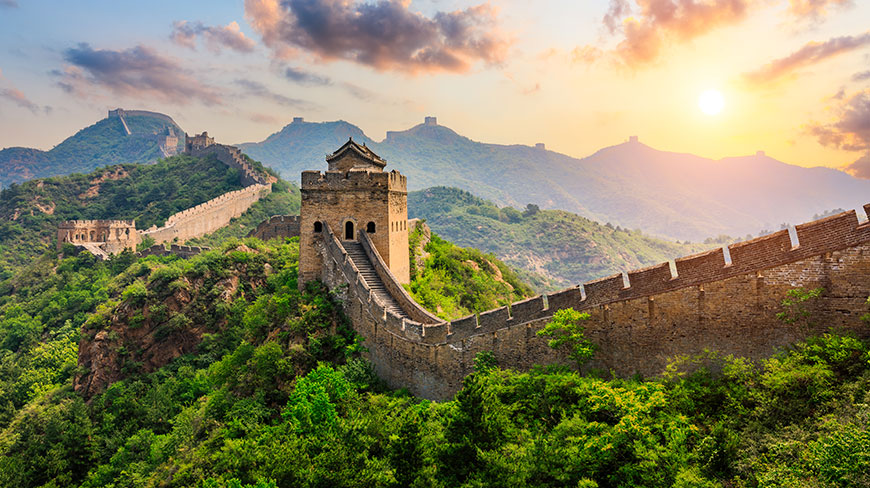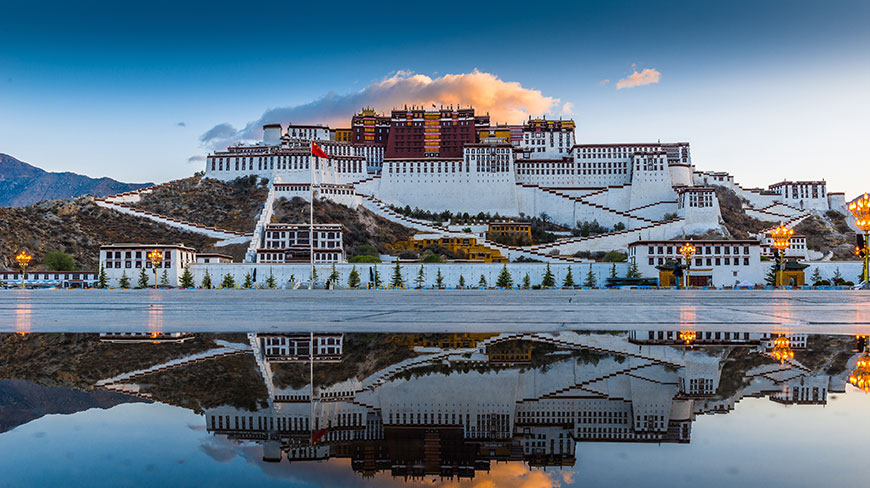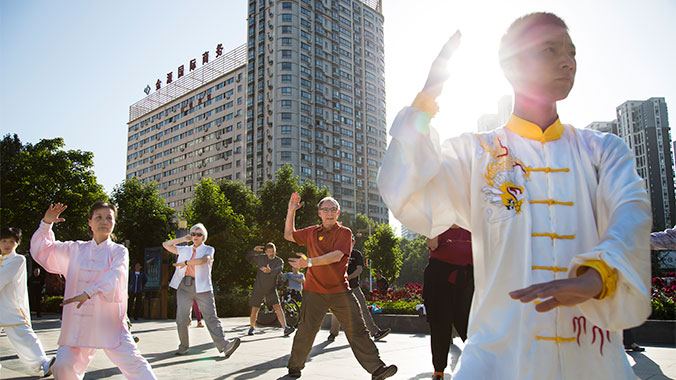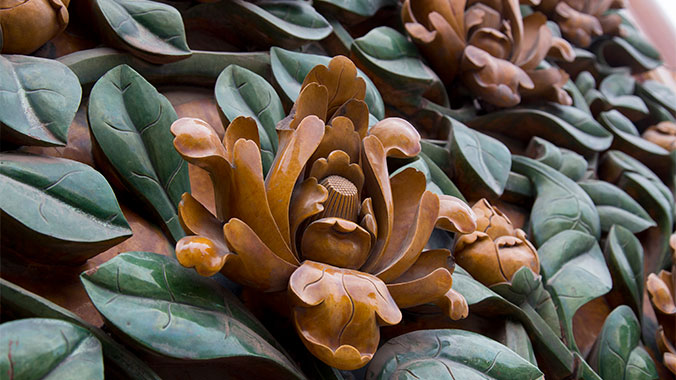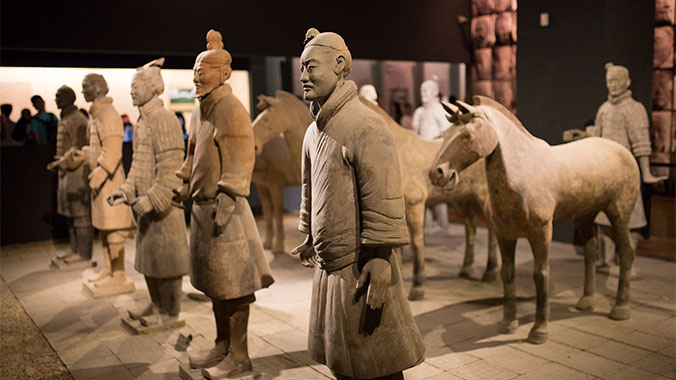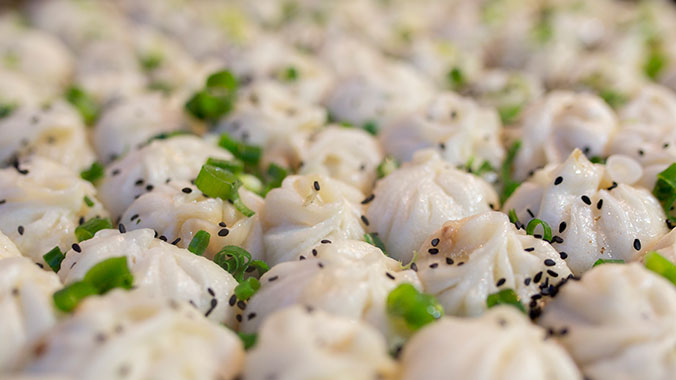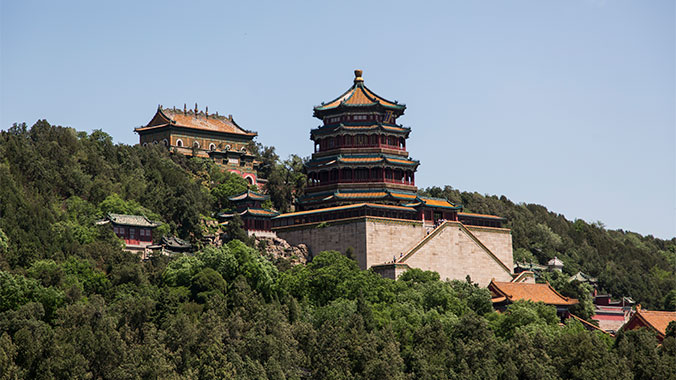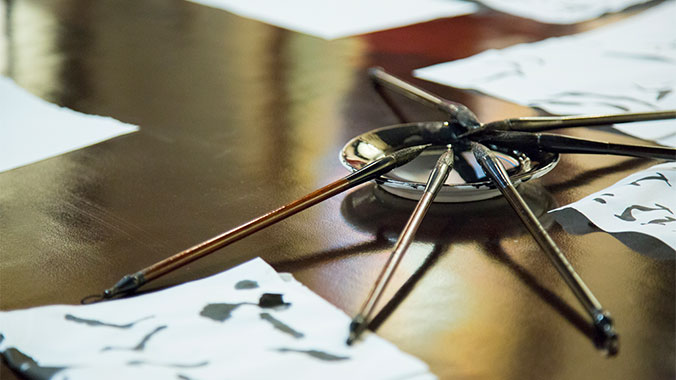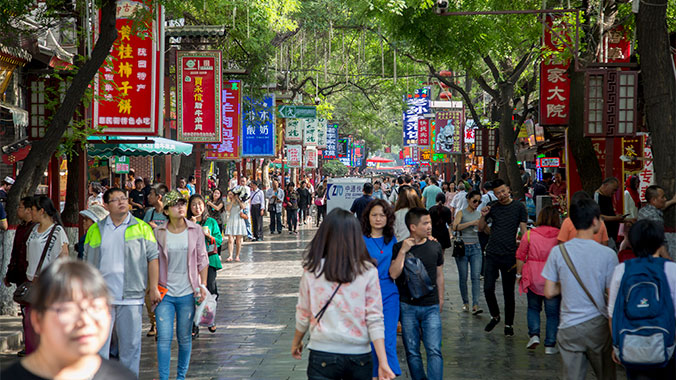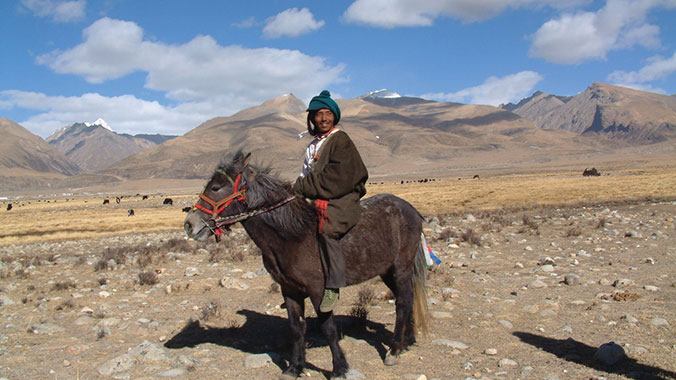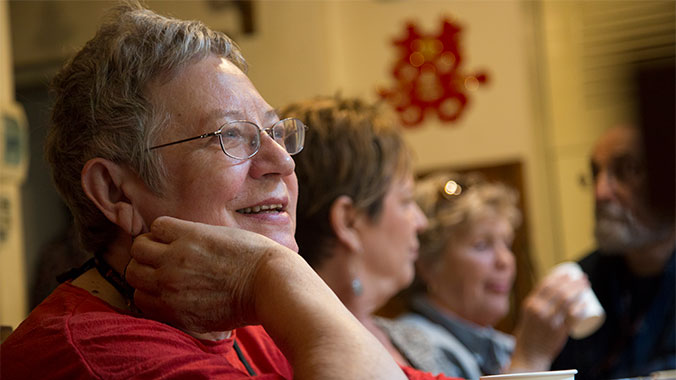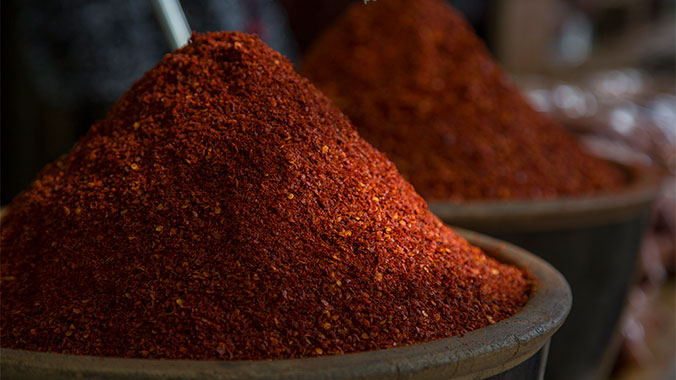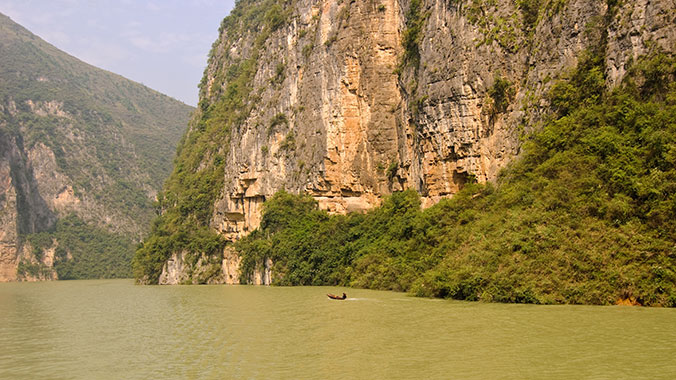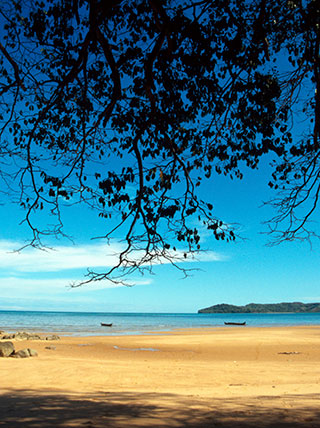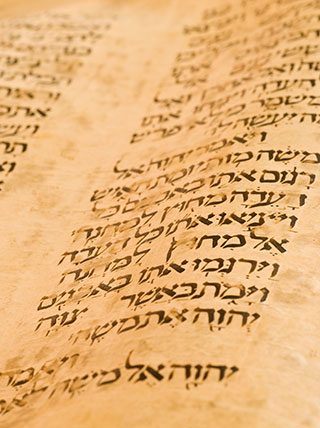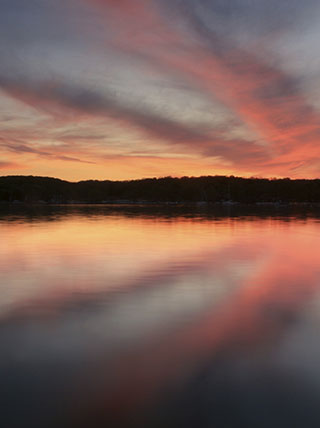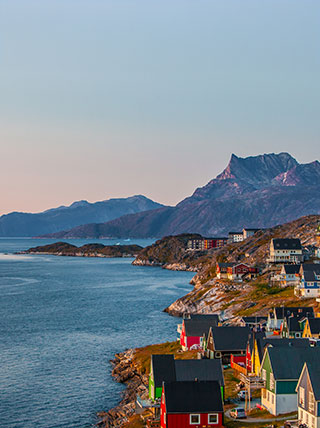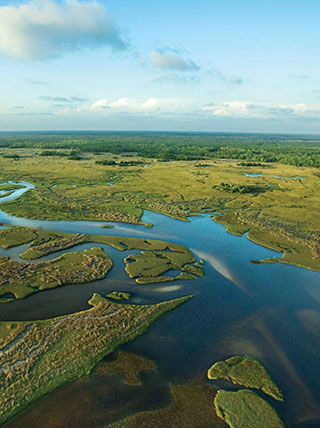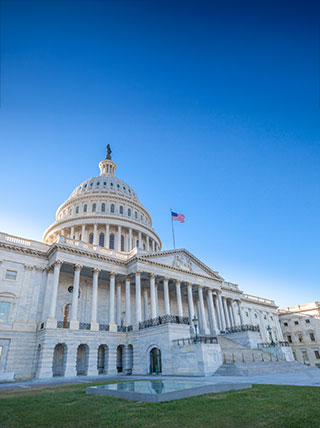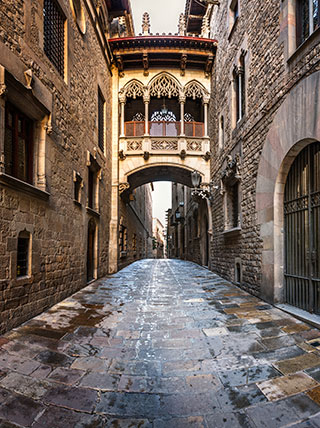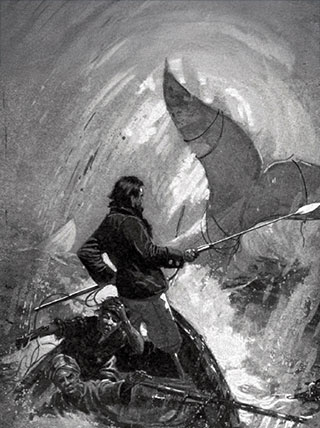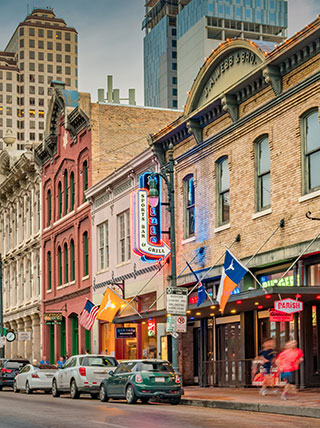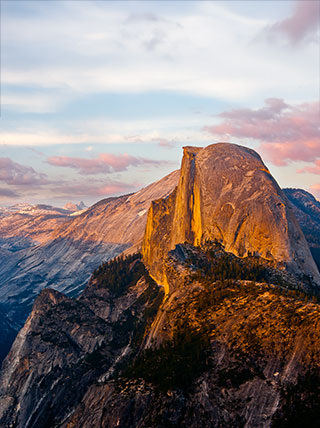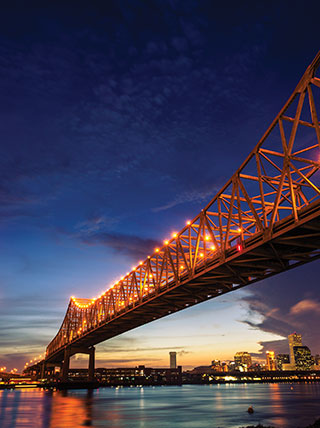China/Tibet
The Best of China: Imperial Capitals, Tibet and the Yangtze River
Program No. 19406RJ
Discover Tibet’s nomadic grasslands and explore China’s cultures and countryside firsthand. Walk the Great Wall of imperial Beijing and sail the Yangtze to contemporary Shanghai.
Enroll with Confidence
We want your Road Scholar learning adventure to be something to look forward to—not worry about. Learn more
Protecting the Environment
We offset a portion of the emissions created by your travel. Learn more
Itinerary
While we make every effort to ensure the accuracy of our published materials, programs are typically advertised more than a year prior to their start date.
Read More.
While we make every effort to ensure the accuracy of our published materials, programs are typically advertised more than a year prior to their start date. As a result, some program activities, schedules, accommodations, personnel, and other logistics occasionally change due to local conditions or circumstances. Should a major change occur, we will make every effort to alert you. For less significant changes, we will update you during orientation. Thank you for your understanding.
Duration
21 days
20 nights
What's Included
50 meals (
19B, 15L, 16D
)
12 expert-led lectures
27 expert-led field trips
2 flights during the program
5 performances
An experienced Group Leader
19 nights of accommodations
Taxes and customary gratuity
Road Scholar Assurance Plan
Day
1
In Transit to Program
Location:
In Flight
Day
2
Arrive, Check-In, Orientation, Welcome Dinner
Location:
Beijing
Meals:
D
Stay:
Qianmen Jianguo Hotel
Afternoon:
After hotel arrival and check in, take some time to freshen up and relax before our Orientation session. Orientation: The Group Leader will greet everyone with a warm welcome and lead introductions. We will review the up-to-date program schedule and any changes, discuss roles and responsibilities, logistics, safety guidelines, emergency procedures, and answer any questions you may have. CAEE Group Leaders are full-time trained professionals and permanent staff members with certification from the Chinese government. All are university graduates, fluent in English, well-educated in safety and protocol and are supported by established local offices nation-wide. Most lunches and dinners will be “family style” with various dishes placed on a “Lazy Susan” turntable in the center of the table where everyone helps themselves. Chopsticks and forks will be available as well as Chinese spoons used for serving and for soup at the end of a meal. Tea and water are served with all meals; other beverages available for purchase. Some mornings as indicated on your itinerary, join the Group Leader for a tai ji session before breakfast to start the day off calm and refreshed. Free time is reserved for your personal independent exploration. Please note that program activities, schedules, and personnel may need to change due to local circumstances. In the event of changes, we will alert you as quickly as possible. Thank you for your understanding.
Dinner:
In the hotel dining room, we’ll enjoy a “family style” meal with typical Chinese dishes and ingredients including rice, meats, vegetables, and non-meat dishes for vegetarians.
Evening:
Continue getting to know your fellow Road Scholars, settle in, and get a good night’s rest for the day ahead.
Day
3
Forbidden City, Tian’anmen Square, Peking Duck Dinner
Location:
Beijing
Meals:
B,L,D
Stay:
Qianmen Jianguo Hotel
Activity Note
Driving up to 1.5 hours throughout the day. Walking approximately 2 miles in and around the Forbidden City on flat, paved terrain with many chairs and benches to rest; up to 80 steps with railings. Walking up to 1/2 mile from the coach to Tian’anmen Square.
Breakfast:
In the hotel dining room, the breakfast buffet offers choices such as warm meats, eggs, cereals, fruit, and Chinese dishes such as rice porridge and cooked vegetables; beverages include juice, tea, coffee, water.
Morning:
We will explore parts of the 250-acre Forbidden City imperial compound. It was called the Forbidden City because it was “forbidden” to enter without the Emperor’s permission. The world's largest palace complex, it is surrounded by a moat 170 feet (52 meters) wide, a wall more than 32 feet (10 meters) high, and contains 8,700 rooms! Construction began in 1407, and, thanks to the labor of a million workers including 100,000 artisans, it was completed in 1420. The Forbidden City was not only the personal residence of emperors and their royal families, but China’s political center for more than five centuries.
Lunch:
At a local restaurant, enjoy a family style meal.
Afternoon:
Walk through Tian'anmen Square, considered the heart of Beijing. Meaning "Gate of Heavenly Peace," the square, set in the heart of Beijing, serves as the location of formal celebrations and ceremonies. More commonly, this huge piazza is where families come to stroll and chat and where kites and balloons abound. Here are located the Chairman Mao Zedong Memorial Hall, the China National Museum, Great Hall of the People, Monument to the People's Heroes, and the Tiananmen Tower. The square was the site in 1989 of pro-democracy protests seen around the world. The remainder of the afternoon is free time. Take this opportunity for personal independent exploration to see and do what interests you most. Please refer to the list of Free Time Opportunities. The Group Leader will be happy to offer suggestions.
Dinner:
At a local restaurant, we’ll have our official welcome dinner and savor Beijing’s famous culinary delight, Beijing Roast Duck, a.k.a. Peking Duck. The ducks are specially raised and the elaborate preparation involves a series of steps to produce the crispy skin and savory meat with traditional accompaniments such as scallion and sweet bean sauce, all rolled inside a thin pancake.
Evening:
At leisure.
Day
4
Old Beijing Hutongs, Family Lunch, Summer Palace
Location:
Beijing
Meals:
B,L,D
Stay:
Qianmen Jianguo Hotel
Activity Note
Led by our Group Leader, tai ji sessions last approximately 30 minutes. No special clothes or shoes are required. Walking up to 1/2 mile in Hutong area, and 1 mile in the Summer Palace on flat, paved terrain.
Breakfast:
Hotel buffet.
Morning:
Rise early and join the group for a pre-breakfast tai ji class led by your Group Leader. You need no prior experience for this relaxing and invigorating way to start the day. After breakfast, we coach to an old neighborhood of traditional 'hutongs' -- an area of small residential alleys with traditional courtyard homes which are rapidly disappearing due to urban development. We will walk about this district which includes many historic residences including the former home of Song Qing Ling.. Song (her surname) was an influential revolutionary figure in the development of modern China and was the wife of Dr. Sun Yat Sen, revered as the first president of the Republic of China. The residence, in which Song lived from 1963 until her death in 1981, is now a museum which preserves her living quarters, her office, and the surrounding peaceful gardens which were once part of a prince’s estate. A separate Hall includes exhibits highlighting Song’s work and life.
Lunch:
In an “Old Beijing” hutong, we’ll gather for a family-hosted lunch including jaozi (Chinese style dumplings).
Afternoon:
Our day continues with a field trip to the Summer Palace, where lily ponds and arched bridges border its serene lake, and painted pavilions depict stories that reflect the rich history of Chinese life and art. After, we will return to the hotel.
Dinner:
At a local restaurant known for their steamed dumplings; dine on their renowned dumplings, stir fried dishes, and rice.
Evening:
At leisure.
Day
5
The Wild Great Wall
Location:
Beijing
Meals:
B,L
Stay:
Qianmen Jianguo Hotel
Activity Note
The motorcoach trip to Jin Shan Ling Great Wall is about 98 miles, approximately 2.5 hours. Walking up to about 1.5 miles. We will take a cable car to a higher point on the wall (weather and wind permitting). Some parts of the wall are very steep as it is in a mountainous area; walking sticks or trekking poles are helpful.
Breakfast:
Hotel buffet.
Morning:
Board a motorcoach and drive out to the Great Wall at Jin Shan Ling, sometimes referred to as 'the Wild Great Wall' as it is not overly restored. Take a gondola lift to the upper part of the wall then walk along its battlements and through watchtowers to experience magnificent views of the wall as it climbs and descends over the distant mountains. It is probably the most beautiful section of the wall accessible from Beijing. It was built from 1368-89 (Ming Dynasty), and rebuilt 1567-70. There are still poems and tablet writings from that time.
Lunch:
At a spot of your choosing, we’ll have box lunches.
Afternoon:
We return to our hotel in Beijing.
Dinner:
This meal has been excluded from the program cost and is on your own to enjoy what you like. The Group Leader will be happy to offer suggestions.
Evening:
At the hotel, join our Group Leader for a chance to learn some handy Chinese expressions.
Day
6
Temple of Heaven Park, Bullet Train To Luoyang
Location:
Luoyang
Meals:
B,L,D
Stay:
Luoyang Companionship Hotel
Activity Note
Walk approximately 1.6 miles from the entrance to the exit of the Temple of Heaven park on flat, paved terrain. Climbing the Temple requires 27 steps. Bullet train to Luoyang is approximately 4 hrs. Toilets and storage spaces for luggage are available at each end of the bullet train cars. In addition to the dining car, there is trolley service throughout the train with water, soft drinks, beer and snacks for purchase. Hot water for tea and coffee is also available in each car.
Breakfast:
Hotel buffet.
Morning:
We will set out early and ride to the 15th century architectural masterpiece, the Temple of Heaven, which symbolizes the relationship between heaven and earth. With our Group Leader, we walk the park-like grounds where local people gather every day to practice their calligraphy and tai ji, play musical instruments, learn various dance forms or simply fly fanciful kites.It is a pleasant place to meet local people in an informal and beautiful setting. We’ll then ride to Beijing West Station and board a bullet train to the small city of Luoyang.
Lunch:
Box lunches on the train.
Afternoon:
Our train travel to Luoyang takes us into Henan Province, located about 500 miles southwest of Beijing. The four-hour high-speed train travels through two provinces in north China (Hebei and Henan) and crosses the Yellow River. Luoyang was one of the four great ancient capitals of China and is home to the extraordinary Longmen Buddhist cliff carvings which we will visit. Check into the hotel late afternoon.
Dinner:
At a local restaurant famous for local dishes.
Evening:
The rest of the evening is at your leisure.
Day
7
Cliff Carvings,Agricultural Village, Chinese Music
Location:
Luoyang
Meals:
B,L,D
Stay:
Luoyang Companionship Hotel
Activity Note
Walking approximately 1.5 miles at Longmen Grotto. For closer views of the stone carvings, climb about 100 steps with railings; you may choose to remain at the bottom of the stairs and walk along a flat, paved path.
Breakfast:
In the hotel dining room, the breakfast buffet offers choices such as warm meats, eggs, cereals, fruit, and Chinese dishes such as rice porridge and cooked vegetables; beverages include juice, tea, coffee, water.
Morning:
Head out to People’s Square for an early morning tai ji session before breakfast. People’s Square is filled with local people practicing martial arts, ballroom dancing, or airing pet birds. After breakfast, we will board a motorcoach for a field trip to the 1,500 year old Longmen Grottoes, a UNESCO-designated World Heritage Site. We will learn about these stone carvings that overlook the Yi River and which celebrate the introduction of Buddhism into China. From the UNESCO inscription: “The grottoes and niches of Longmen contain the largest and most impressive collection of Chinese art of the late Northern Wei and Tang Dynasties (316-907). These works, entirely devoted to the Buddhist religion, represent the high point of Chinese stone carving.” Those who prefer not to climb the steps to get a closer look at the carvings may remain at the bottom and walk along a flat, paved path.
Lunch:
We take a short ride to the Hua Yuan Cun agricultural village. There, we will divide into smaller groups and visit local families for a chance to observe life in the countryside and enjoy a home-cooked meal (accompanied by local English speakers).
Afternoon:
We coach back to our hotel. After a short rest, we will gather at the hotel for an introduction to traditional Chinese musical instruments and a short performance/demonstration.
Dinner:
At a local restaurant.
Evening:
at leisure
Day
8
To Xi’an, Hui Muslim Section
Location:
Xi'an
Meals:
B,L,D
Stay:
Grand Noble Hotel
Activity Note
Train ride is approximately 1.5 hours. You are welcome to join the Group Leader for a tai ji session before breakfast. Climb approximately 40 steep, narrow steps with railings to the top of the Drum Tower. Walking up to 0.6 mile, or 1.5 miles total if choosing to walk back to the hotel from the Muslim section. Large luggage will be transferred directly from the train to the hotel; carry-on luggage can be brought and left on the motorcoach until we reach the hotel.
Breakfast:
Hotel buffet.
Morning:
Join the early morning tai ji session in People’s Square. After breakfast, check out of the hotel and coach to the train station for our morning train to the city of Xi’an, 230 miles to the west. Enjoy views of rural life from the train as you ascend China's Yellow Soil Plateau. The land is covered with a thick layer of wind-blown loess soil, which masks the original landforms. Deeply eroded, the landscape has steep ravines and almost vertical cliff faces poked with holes and caves known as 'yaodong,' which are used for dwelling and resting. Our train will arrive in Xi’an around 12:00 Noon. Disembark the train and head to the Muslim area by motorcoach.
Lunch:
At a local restaurant in the Muslim area, offering stir-fried dishes made of beef, lamb, chicken, and various vegetable. No pork or alcoholic beverages are served in Muslim restaurants.
Afternoon:
Setting out on foot, we will explore Xi’an’s Hui Muslim area. Among the highlights are its beautiful Great Mosque, one of China's best preserved. Xi'an was a hub of the Silk Road in ancient times. Merchants, traders, and students from Islamic lands were drawn there and settled down. Over generations, they became known as the Hui people, officially recognized as one of China’s ethnic minorities. There were thousands of mosques in China at one time, but most are now gone. We’ll transfer to the hotel and check-in in the late afternoon.
Dinner:
At a local restaurant a short walk from the hotel.
Evening:
Practice spoken Chinese with our Group Leader.
Day
9
Xi’an University, Chinese Life Views, Shaanxi History Museum
Location:
Xi'an
Meals:
B,L,D
Stay:
Grand Noble Hotel
Activity Note
Walk approximately 1 mile on flat, paved terrain mostly indoors in approximately 2 hours.
Breakfast:
In the hotel dining room, the breakfast buffet offers choices such as warm meats, eggs, cereals, fruit, and Chinese dishes such as rice porridge and cooked vegetables; beverages include juice, tea, coffee, water.
Morning:
Early morning tai ji session in the hotel courtyard. After breakfast we coach to Xi'an International Studies University, one of China's key institutions of higher learning, and meet with a faculty expert who will discuss Daoism, Buddhism, and Confucianism as a way of understanding Chinese character and customs.
Lunch:
In the university dining room, we’ll have a family style meal with typical Chinese dishes including meats such as chicken or pork with vegetables as well as non-meat platters such as tomatoes, potatoes, bakchoi, mushrooms, served with rice.
Afternoon:
This afternoon we take a short coach ride to the state-of-the-art Shaanxi History Museum, where we will gain an understanding of China’s dynastic history as well as its rich and enduring culture. This museum was built in the 1990s in the architectural style of the Tang Dynasty and named after Shaanxi province of which Xi’an is the capital city.
Dinner:
At a local restaurant, taste a selection of unique dumplings with amusing shapes and delicious variations in fillings -- a Xi'an specialty.
Evening:
Join our Group Leader for informal instruction in useful Chinese conversational phrases.
Day
10
Terra Cotta Warriors, Current Chinese Government
Location:
Xi'an
Meals:
B,L
Stay:
Grand Noble Hotel
Activity Note
Drive is approximately 1 hour each way. Walking approximately 2 miles at the Terra Cotta Warriors on flat, paved terrain.
Breakfast:
Hotel buffet.
Morning:
Early morning tai ji session. The huge tomb site of the Qin Emperor, containing an army of life size terra cotta figures, was one of the most astounding archaeological discoveries of the 20th century. With our Group Leader and experienced local staff — all Xi’an college graduates who have much experience with the terra cotta warriors site — we will explore sections of this vast site where three huge pits are filled with the terra-cotta soldiers, cavalry, archers, their weapons, horses and chariots. It has been estimated that there are as many as 8,000 individual figures, but the total number is still unknown. Traces of paint suggest they were once brilliantly colored. Experimental digs in nearby areas have revealed other kinds of figures such as acrobats, dancers, and musicians, but further excavations are “on hold” due to the complex conditions at the site.
Lunch:
We will ride to a restaurant near the Terra Cotta Warriors for a buffet lunch with local Chinese food and some Western additions.
Afternoon:
Returning to the hotel, join our Group Leader for a discussion of the Chinese government structure.
Dinner:
On your own to enjoy what you like.
Evening:
At leisure.
Day
11
To Lhasa, Norbulingka Summer Palace
Location:
Lhasa
Meals:
B,D
Stay:
Xueyu Tiantang International Hotel Lhasa
Activity Note
Drive to the airport is approximately 1 hour; flight to Lhasa is 3hr 10 minutes; drive approximately 1 hour to the hotel to check in. Walking up to 1 mile in Norbulingka. Although Tibet uses “Beijing time,” it is actually 2 hours later than Beijing. All of our times have been adjusted to reflect this time change.
Breakfast:
Hotel buffet.
Morning:
Early morning tai ji session. After breakfast, we will check out of the hotel and transfer to the airport for our flight to Lhasa, the ancient capital of Tibet.
Lunch:
In flight.
Afternoon:
Arriving in Lhasa, we will ride from the airport to our hotel for check in. After a short opportunity to relax, we will be joined by a professor from Tibet University to talk about Tibetan life, culture, and religion. Then board the motorcoach for a short ride to explore Norbulingka; the summer palace of the Dalai Lama and a UNESCO World Heritage Site, it contains his residential quarters and is a hub for local entertainment during the summer and autumn months.
Dinner:
At a local restaurant.
Evening:
Join our Group Leader to continue practicing conversational Chinese.
Day
12
Jokhang Temple & Bazaar, Thangka Painting, Sera Monastery
Location:
Lhasa
Meals:
B,L,D
Stay:
Xueyu Tiantang International Hotel Lhasa
Breakfast:
At the hotel we will have a buffet offering eggs, yogurt, bread with various spreads, and fruit, plus coffee, tea, fruit juices, water.
Morning:
Today we will coach to the heart of Lhasa to explore the Jokhang Temple, built in the 7th century. This is the most revered temple in Tibet and the destination of pilgrims who journey by any means, even on foot, to worship here. Surrounding the temple is the Bokhor Bazaar, offering an exciting array of Tibetan goods both old and new: tools, cloth, thangkas, jewelry, and yak hides.
Lunch:
At a restaurant overlooking the bazaar, we’ll dine on a mixed style of Tibetan, Chinese, and Nepalese dishes often including yak meat, chicken, curry dishes, vegetables, Naan, rice, and dessert, plus tea, soft drinks, water.
Afternoon:
Coach to the edge of town near Sera Monastery. Learn about traditional Thangka painting (Tibetan religious scrolls) through a talk and demonstration by a Master. Then, visit Sera Monastery, one of Tibet's three great monasteries and famed for the debating style of its resident monks.
Dinner:
At the hotel or a local restaurant.
Evening:
With our Tibetan expert, discuss Tibetan culture and religion at the hotel.
Day
13
Rural Village and Nunnery, Grasslands Picnic
Location:
Lhasa
Meals:
B,L
Stay:
Xueyu Tiantang International Hotel Lhasa
Activity Note
Drive is approximately 2 hours to the nomadic village.
Breakfast:
Hotel buffet.
Morning:
Board the motorcoach and head out into the countryside beyond Lhasa to grasslands where we meet a pastoral Nomadic family that raises livestock.
Lunch:
At an outdoor spot enjoy a varied picnic buffet prepared by our hotel and which includes soup, salads, rice, vegetables and other dishes. Dine at a portable table and chairs arranged for our al fresco lunch in the Tibetan countryside.
Afternoon:
After lunch, we drive to a nearby herdsmen’s village to learn firsthand about their daily life in rural Tibet. Following our visits, we take a short walk to a modest nunnery where we may encounter its residents chanting or studying scripture. The nuns are welcoming and enjoy sharing the precepts of their life and Tibetan Buddhism.
Dinner:
This meal has been excluded from the program cost and is on your own to enjoy what you like. The Group Leader will be happy to offer suggestions.
Evening:
Continue practicing conversational Chinese with our Group Leader.
Day
14
Potala Palace, Tibet Museum, Tibet Farewell
Location:
Lhasa
Meals:
B,L,D
Stay:
Xueyu Tiantang International Hotel Lhasa
Activity Note
The palace has 458 steps up and down. Walking shoes are necessary and walking sticks might be helpful. The climb up to Potala Palace is a one-way trip; the entrance is in the front and the exit is in the back. Our Group Leader will set a final meeting time and place. If some of our group decide to go halfway or walk around at the base of the palace on their own, they can meet our group at the designated meeting place.
Breakfast:
Hotel buffet.
Morning:
Coach to the Potala Palace, seat of the Dalai Lama and one of the most awe-inspiring princely residences and palaces in the world. A UNESCO World Heritage Site, the Potala Palace served as the Dalai Lama’s winter residence from the 7th century. Our local Tibetan expert will lead those who want to climb and the Group Leader will accompany those who do not wish to climb for a walk at the base of the palace where there is a lovely small park.
Lunch:
At a local restaurant serving traditional Lhasa cuisine including Tibetan, Chinese, and Nepalese dishes often featuring yak meat, chicken, curry dishes, vegetables, Naan, rice, and dessert, plus tea, soft drinks, water.
Afternoon:
We take a short coach ride to the unique Tibet Museum whose rich collection includes exhibits ranging from pre-historic artifacts to the architecture, customs, costumes, culture, and religion of the Tibetan peoples. As well, the museum’s top floor provides lovely views of Lhasa including the Potala Palace and the mountains beyond.
Dinner:
At the hotel or a local restaurant.
Evening:
At the hotel, we will have a private farewell party featuring Tibetan dance and song.
Day
15
To Chongqing, Giant Pandas, Yangtze River Sailing
Location:
Yangtze River Vessel
Meals:
B,D
Stay:
Victoria Cruise Lines
Activity Note
Drive approximately 1 hour to the airport; flight to Chongqing is approximately 2 hours, drive 1 hour to Chongqing Zoological Gardens. Walking up to 1.5 miles at the Zoological Gardens. About 35 steps down to the Yangtze River Dock with railings for embarkation. Luggage must be claimed at the Chongqing airport and will be transported directly to the vessel. Carry-on luggage can be left on the coach during the day.
Breakfast:
Hotel buffet.
Morning:
Check out of the hotel and transfer to the airport for our flight to Chongqing, an independent municipality situated inside Szechuan Province and at the head of the navigable Yangtze.
Lunch:
In flight.
Afternoon:
Having arrived in Chongqing, we will transfer to the Chongqing Zoological Gardens to observe its giant pandas, indigenous primarily to the Szechuan province. Led by local staff members, we will visit the pandas during their feeding time when they are most active.
Dinner:
At a local restaurant.
Evening:
Transfer to our Yangtze vessel, and as we depart, view the city of Chongqing on the hill.
Day
16
Relocated Families, Free Time
Location:
Yangtze River Vessel
Meals:
B,L,D
Stay:
Victoria Cruise Lines
Breakfast:
Aboard the ship, the breakfast buffet offers choices such as warm meats, eggs, cereals, fruit, and Chinese dishes such as rice porridge and cooked vegetables; beverages include juice, tea, coffee, water.
Morning:
Discuss traditional Chinese medicine and consider the Yangtze's influence on China. Where possible, our Group Leader will also continue instruction in tai ji and Chinese conversation as we sail down the river.
Lunch:
Aboard the ship, we will have a buffet often including soup, salad, stir-fried dishes, dessert, fruit, and dessert, plus coffee, tea, soft drinks, water.
Afternoon:
We will visit a new village for relocated families, exploring their agricultural market and visit a local family with a local staff member. Our host or hostess will introduce us to their village and family, followed by an opportunity to ask some questions translated by our Group Leader. Before dinner, join the captain for a welcome reception aboard the ship.
Dinner:
Aboard ship, we will have a choice of a plated meal 3-course meal ordered a la carte from the dinner menu provided during breakfast and lunch, plus soft drinks, water.
Evening:
Entertainment aboard the ship including performance of Chinese music and dance.
Day
17
Yangtze Gorges, Ferry Through Mini Gorges
Location:
Yangtze River Vessel
Meals:
B,L,D
Stay:
Victoria Cruise Lines
Breakfast:
Aboard ship.
Morning:
Today, pass through the magnificent Yangtze Gorges and ferry up a mini-gorge on a pristine tributary of the Yangtze. Here we can catch glimpses of red monkeys amongst the trees, goats clinging to the craggy cliffs, and 'hanging coffins' secured in the cliff face by the Ba people centuries ago. As we sail, the ships staff will offer commentary.
Lunch:
Aboard ship.
Afternoon:
Free Time. Enjoy the views as we sail the Yangtze, attend one of the ship’s presentations, or continue to learn conversational Chinese with our Group Leader.
Dinner:
Aboard ship.
Evening:
Onboard entertainment.
Day
18
Disembark, Three Gorges Dam, Bullet Train to Shanghai
Location:
Shanghai
Meals:
B,L,D
Stay:
Harbour Plaza Metropolitan Shanghai
Activity Note
Getting on/off vessel; on/off motorcoach; on/off train. Driving about 30 miles to Yichang train station, approximately 1 hour. Riding about 700 miles on train, approximately 6.5 hours. Walking about 1 mile, approximately 2.5 hours, at dam site; 40 elective steps to observation tower. Disembarking ship, 30 steps; paved terrain.
Breakfast:
Aboard ship.
Morning:
We disembark in the morning prior to our field trip to the Three Gorges Dam Site. Large luggage will be transferred to the railway station by a separate van. Carry-on luggage can be brought on the motorcoach. We coach to the Three Gorges Dam site where, from an observation deck, we will have a bird’s-eye view of the dam, the five-step ship lock, the diversion canal, and power station. A nearby exhibition displays a dam model and, during a briefing, we learn about this largest water conservation project in world history.
Lunch:
En route to the railway station, we’ll have box lunches.
Afternoon:
We coach to the Yichang Railway station where we board a high-speed “bullet” train to Shanghai. Your Group Leader will give you custom handouts with information about sites and sights you will pass -- plus a custom map. Our ride of about 700 miles passes through countryside, suburbs, and three provincial capitals: Wuhan (Hubei Province), Hefei (Anhui Province), and Nanjing (Jiangsu Province). Our train conveniently arrives in Shanghai's city center. Situated in the Delta of the Yangtze River on China’s east coast, Shanghai is the country's most populous city and the world's largest port. We ride in 1st class carriages arranged with two seats on either side of the central aisle. Western style toilets and storage space for luggage are available at each end of the car. In addition to the dining car, there is trolley service offering water, soft drinks, beer, and snacks for purchase. Hot water for tea and coffee is available in every car.
Dinner:
Aboard the train.
Evening:
Upon arrival in Shanghai, we will ride to our hotel for check in.
Day
19
Shanghai Museum, Riverside Bund, Acrobatics Performance
Location:
Shanghai
Meals:
B,D
Stay:
Harbour Plaza Metropolitan Shanghai
Activity Note
Walk up to 10 minutes to the metro station with a staff member or ride the coach with the Group Leader to the Shanghai Museum. Spend about 2 hours at the museum; elevators and escalators available. Acrobatic performance will last for 1hr 40 minutes.
Breakfast:
In the hotel dining room, the breakfast buffet offers choices such as warm meats, eggs, cereals, fruit, and Chinese dishes such as rice porridge and cooked vegetables; beverages include juice, tea, coffee, water.
Morning:
After breakfast we’ll board a motorcoach for a field trip to the state-of-the-art Shanghai Museum, completed in 1996 on People’s Square, previously the site of Shanghai’s colonial horse-racing course. At the museum, enjoy a self-led exploration using English language audio guides, allowing you to venture among China’s unparalleled collection of paintings, bronzes, ceramics, and sculpture at your own pace and according to your own interests.
Lunch:
On your own to enjoy what you like. The Group Leader will be happy to offer suggestions. The Museum contains a small café if you would like a convenient option to continue exploring the museum on your own.
Afternoon:
Meeting at a predetermined time and place, we will regroup and travel to the riverfront Bund. With our Group Leader, walk along the pedestrian promenade beside the busy Huangpu River. Learn about this renowned riverfront area characterized by iconic Art Deco and Neoclassical buildings from Shanghai's history as a foreign “concession.” Unaffected by the Great Depression, Western capital financed extensive neighborhoods in the Art Deco style for nearly a decade and which remained untouched during the Japanese invasion in 1937 and WWII. Across the river we see “new Shanghai” that was only recently undeveloped farmland and is now a forest of glittering skyscrapers. The motorcoach will then return to the hotel.
Dinner:
At a local restaurant near the hotel.
Evening:
Travel to the Shanghai Acrobatics theater to attend an evening of amazing skill and prowess in a performance by the world-famous Shanghai Acrobatics Troupe. For thousands of years, acrobatics have been considered as one of the treasures of Chinese performing arts, also figuring in other genres such as Beijing Opera.
Day
20
Yu Garden, Xin Tian Di District
Location:
Shanghai
Meals:
B,L,D
Stay:
Harbour Plaza Metropolitan Shanghai
Breakfast:
Hotel buffet.
Morning:
We’ll board a motorcoach and ride to Shanghai's historic old section. With our Group Leader, we’ll explore the nearby Yu Garden whose classical pavilions, fountains, and arching bridges exemplify traditional Chinese garden landscaping.
Lunch:
At a local restaurant.
Afternoon:
We coach to Shanghai’s Xin Tian Di district – a cultural street and restoration project that has set a benchmark for Asia.
Dinner:
At a nearby restaurant we will have our farewell dinner.
Evening:
At leisure.
Day
21
Program Concludes
Location:
Shanghai
Meals:
B
Activity Note
See the “Travel Information” section regarding transfers. If you are an independent traveler (POP status), see “Ground Transportation from Last Location.” The Group Leader will advise as to departure times from the hotel.
Breakfast:
Hotel buffet. This concludes our program. If you are returning home, safe travels. If you are staying on independently, have a wonderful time. If you are transferring to another Road Scholar program, detailed instructions are included in your Information Packet for that program. We hope you enjoy Road Scholar learning adventures and look forward to having you on rewarding programs in the future. Please join our Facebook page and share photos of your program. Visit us at www.facebook.com/rsadventures. Best wishes for all your journeys!
Please select a day to update the map
Map details are not available for this location.

